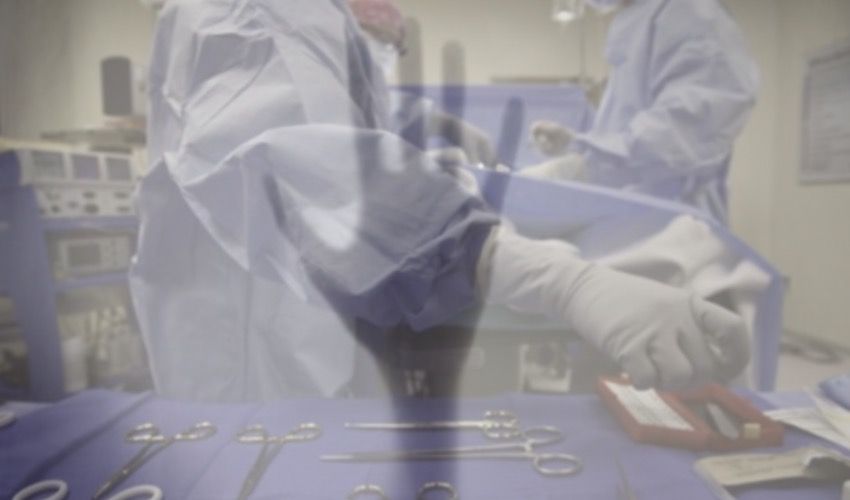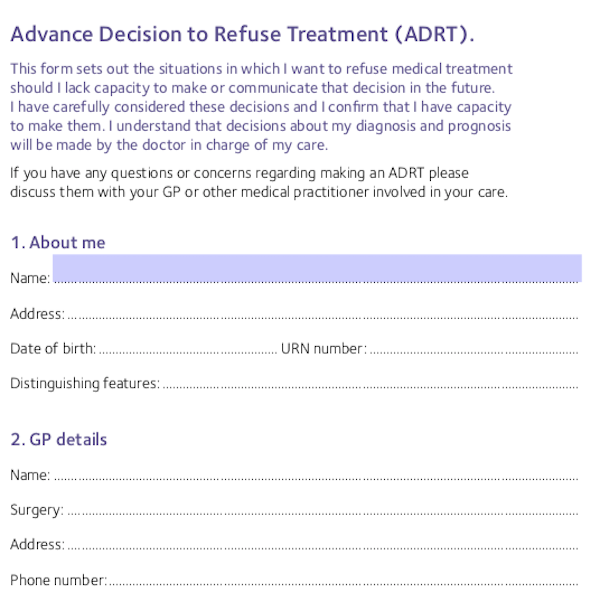

In the second part of his series about making a will, Advocate Olaf Blakeley discusses how rules can be set to govern the medical treatment one receives, even if they are able to give instructions when needed.
"A law was recently introduced in Jersey, formally introducing ‘Advanced Notices to Refuse Medical Treatment’ (ADRT).
There may be many people who are unaware of the introduction of this law and so I thought it may be helpful to explain a little about ADRTs.
ADRTs allow you to formally record any medical treatments you have decided you would not want to receive at a future time so that, should you later not be able to properly communicate, those decisions of yours will be respected.
Because ADRTs are introduced by law, it means they must be adhered to by medical professionals. However, there are some restrictions as to when and by whom ADRTs can be created. You cannot make an ADRT for instance if you are under the age of 16, or if you lack capacity at the time of executing them. I am in favour of ADRTs. There is no reason why they should not be permitted, provided the person executing them fully understands the implications of doing so. If you can refuse medical treatment when you are able to give instructions then there is no reason why you shouldn’t be able to set that decision in advance, for a time when you lack capacity.

Pictured: Under the new law, anyone over the age of 16 can record any medical treatments they do not want to receive at a future time.
There is a lot of guidance available about ADRTs on the internet on the Jersey Government website, and if you are interested in making such a document it is recommended that you look at that information and guidance. Two things are suggested to assist you, if you are considering making an ADRT: first, you should speak to friends and family about your wishes, and explain what you want in respect of medical intervention. This helps because, at the time you need care, they will be fully familiar with your choices.
Secondly, it is recommended that you speak to your GP. I think this is a good idea. The wishes you set out in the ADRT must be clear. There should be no ambiguity about your wishes and, because medicine is a technical issue, a GP’s input is a very good idea.
ADRTs are not documents in which you can request euthanasia. Euthanasia is not legal in Jersey. However, an ADRT does allow you to refuse life sustaining treatment. So, for instance, you can record that you do not wish to be resuscitated should your heart stop. The distinction here of course, is that you are choosing that nothing be done to you, as opposed to something being done to end life.

Pictured: Advocate Olaf Blakeley says that a will is not the place to record medical treatment choices.
In my legal practice I am seeing more and more clients who want to set out in their wills or documents accompanying their wills their decisions to refuse medical treatment. A will is not the place to record those choices. Instead, an ADRT should be used. I mention this about clients because I have seen a sudden increase in people who have considered the issues about medical treatment and want advice on how to ensure certain treatments are not given.
In Jersey, as in many countries, the law recognises freedom of choice, and ADRTs are just one way of advancing free choice. There will also be a large section of the public who have strong religious beliefs and faiths, and some medical intervention may offend those beliefs. This is yet another reason why ADRTs are a welcome advance in my opinion. Provided you are of sound mind, you should have freedom of choice, and not have medical treatment given against your will.

Pictured: The Government provides a standard form for creating an ADRT.
Yet another very welcome development is that the government website provides a standard form with multiple sections for creating an ADRT. This makes creating an ADRT much simpler. I strongly advise that should you wish to make one, you visit the website and use the form.
There is no compulsion to use the standard form but, in my opinion, by doing so you are less likely to make mistakes which would render your selections and choices void, or unenforceable. It will also help focus your mind on what to include, and what to exclude. Clearly, if you are interested in making an ADRT, you would wish to do it correctly."
This piece appeared in the latest edition of Connect, which you can read in full by clicking here.
Comments
Comments on this story express the views of the commentator only, not Bailiwick Publishing. We are unable to guarantee the accuracy of any of those comments.